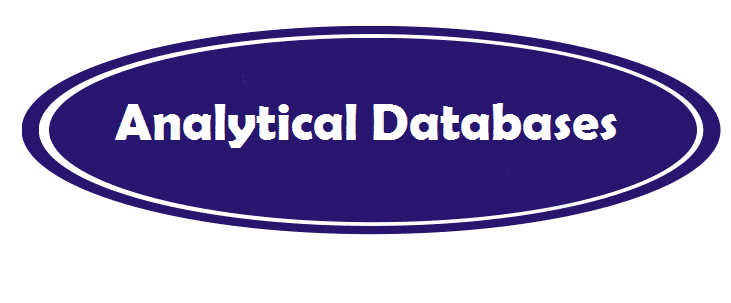The analytical databases are modified databases which every aspect is optimized for the analytical purpose. This optimization is done so that the performance of query execution is faster and the database can be scalable easily. An analytical database is always expanding, and it expands more than any other type of database available. Therefore, with optimization, the maintenance also becomes convenient. Basically, an analytical database stores the historical data such as sales performance, inventory levels and many such business metrics related data. This database is mainly used by the business analysts, and they run a query against the database to generate useful reports. The main purpose of the analytical database is to support business intelligence and be a part of the data warehouse.
Type of Analytical Databases –
There are basically five types of analytical databases available.
Columnar database – Here the data are organized column-wise instead of row-wise. This improves the performance as fewer data need to be read by the database engine for processing any query.
Data Warehouse Appliance – This is a combination of hardware and BI tools with the database for handling analytical workloads smoothly.
In-Memory Database – The source data is loaded in a compressed format, and they are non-relational in nature so that the database engine can streamline the data for easy processing of queries.
MMP Database – The source data are spread across a cluster of servers due to which the workload is shared for faster processing.
OLAP Database – The source data are stored in multidimensional cubes so that analyzing them based on multiple data attributes become easy.
Importance of Analytical Database –
Before coming to the analytical database, it is important to understand the importance of analytics for any business. The main objective of a business is to grow constantly. However, identifying the opportunities to grow is really difficult. This is exactly where analytics come into play and reveal the hidden opportunities. Analytics the data generated within the business can reveal so much that never meet the eye initially.
You can understand what users are liking and disliking, what is working for your business growth and what is not, what are the changes you can make to better your business and where your resources are getting wasted and much more. Therefore, businesses are investing a lot to do data analysis and identify the spots to invest on and grow steadily. The reports generated after the analysis of the data help in taking massive business decision pretty easily.
However, data from analytics cannot be extracted well for any traditional database because, with time, there are literally unlimited data to use. It is difficult to generate reports from a mess of data, and such reports are not going to be as perfect as the ones you generate from an optimized database. This is exactly what analytical database is, an optimized form of traditional data and the optimization is done for the analytical purpose only.
What Analytical Database Bring On the Table –
It is established that the analytical databases are absolutely indispensable for any business and its future prospects. The main thing about the analytical database is how well the data are organized for the analytical purpose. Therefore, an analytical database brings faster performance and accurate reporting platform. They are optimized in such a way that even when the workload increases exponentially, the speed of performance is not affected. In fact, it is tailor-made for all the complex and advanced analysis the data analysts want to perform. Moreover, there is no latency issue when the data updates are frequent. Therefore, it is safe to say that the analytical database is a perfect example of efficient data management.
Besides, the kind of queries that used to be executed in the past has changed drastically, and it is especially because the business departments have their own need. They want more agility in data processing so that the insights are thorough and accurate and the decision making becomes far more convenient. As a matter of fact, analytical databases are enabling business executives to get real-time reports and take instant decisions to drive sales and revenue. An analytical database is equipped to handle all the workload and operations without slowing down.
In short, analytical databases help in the easy management of data volume and variety, easy processing of complex queries, better handling of mixed workloads, better performance and scalability, better technical analysis and thereby, taking informed business decisions that are likely to put the business in the path of constant growth.
Conclusion –
The importance of analytical databases for a business is immense and therefore, more and more big and even small businesses for investing in analytics. This is helping them to get an easy grip on the targeted audiences and get an edge over the competitors easily. This is why the spread of analytical database has been increasing exponentially, and so has the value of the data analysts in the industry.

